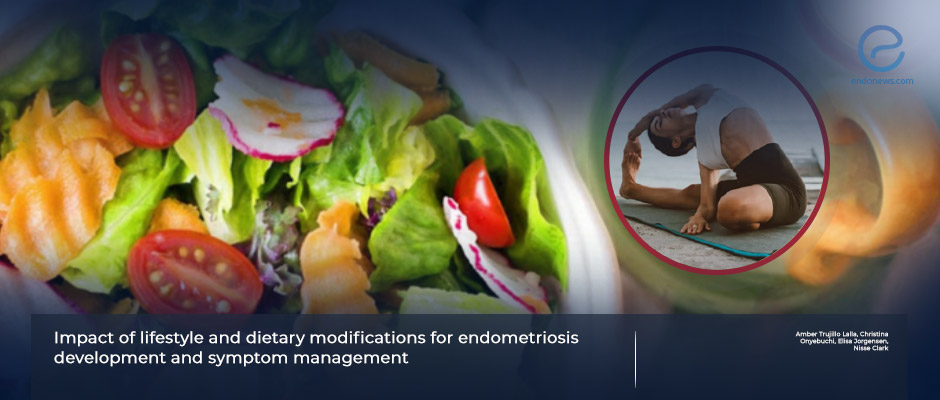Lifestyle and Environmental Factors in Endometriosis: Current Insights and Future Directions
Nov 26, 2024
Self-management treatment therapies and dietary changes may increase the quality of life in women having endometriosis..
Key Points
Highlights:
- Lifestyle factors, including diet, exercise, and environmental exposures, significantly influence endometriosis symptoms and quality of life.
- Endocrine-disrupting chemicals (EDCs) and inflammatory diets increase risk, while anti-inflammatory diets and physical activity improve outcomes.
Importance:
- A multidisciplinary approach incorporating diet, exercise, and psychological care is critical for managing the multifactorial nature of endometriosis.
- Addressing lifestyle and environmental factors may offer adjunctive strategies to enhance patient care.
What’s done here?
- This review synthesizes literature on the impact of lifestyle modifications, including diet and physical activity, on endometriosis management.
- The role of environmental exposures, particularly EDCs, in the development and progression of endometriosis is assessed.
Key results:
- Concerning dietary factors, mditerranean, gluten-free, or anti-inflammatory diets show potential benefits, while high intake of red meat, coffee, or trans fats may increase risk.
- In tems of supplements, anti-inflammatory agents such as omega-3 fatty acids, vitamins (C, D, E), and antioxidants reduce oxidative stress and alleviate symptoms.
- Increased physical activity mitigates pain, inflammation, and oxidative stress, enhancing overall well-being.
- Practices like yoga and mindfulness demonstrate promise in reducing symptom burden, and are appropriat Mind-Body Interventions.
- Environmental Exposures are also important. EDCs disrupt hormonal balance, contributing to disease risk through mechanisms such as hormone receptor modulation and oxidative stress.
Strengths and Limitations
- Evidence in literature is limited to small observational studies with many confounding factors.
- Although data support the association between endometriosis and lifestyle, our ability to optimize the quality of life and therefore the risk of disease development is limited.
Lay Summary
Endometriosis-associated symptoms such as dysmenorrhea, dyspareunia, chronic pelvic pain have an effect to diminish the quality of life. The physical and mental quality of life of these women is adversely affected. There are several studies evaluating the quality of life and environmental factors in endometriosis patients.
Researchers in the U.S., led by Lalla et al., recently published a review titled "Impact of Lifestyle and Dietary Modifications for Endometriosis Development and Symptom Management" in Current Opinion in Obstetrics and Gynecology. This review focuses on how lifestyle factors, including diet, exercise, and environmental exposures, influence the risk and symptoms of endometriosis.
The findings suggest that diets rich in phytoestrogens, red meat, coffee, and trans fats, along with reduced physical activity and exposure to endocrine-disrupting chemicals (EDCs), are linked to a higher risk of developing endometriosis. On the other hand, adopting Mediterranean or anti-inflammatory diets, elimination diets (such as low FODMAPs), and supplements with anti-inflammatory properties (like omega-3 fatty acids, vitamins C, D, and E, and antioxidants) can alleviate symptoms and improve quality of life. Increased physical activity, especially mind-body practices like yoga, also shows promise in reducing pain and enhancing well-being.
The authors emphasize the need for more high-quality studies to provide clear clinical guidelines on how lifestyle modifications can be integrated into endometriosis care.
Research Source: https://pubmed.ncbi.nlm.nih.gov/38869435/
endometriosis quality of life self-management women’s health health outcomes diet endocrine-disrupting chemicals lifestyle physical activity

